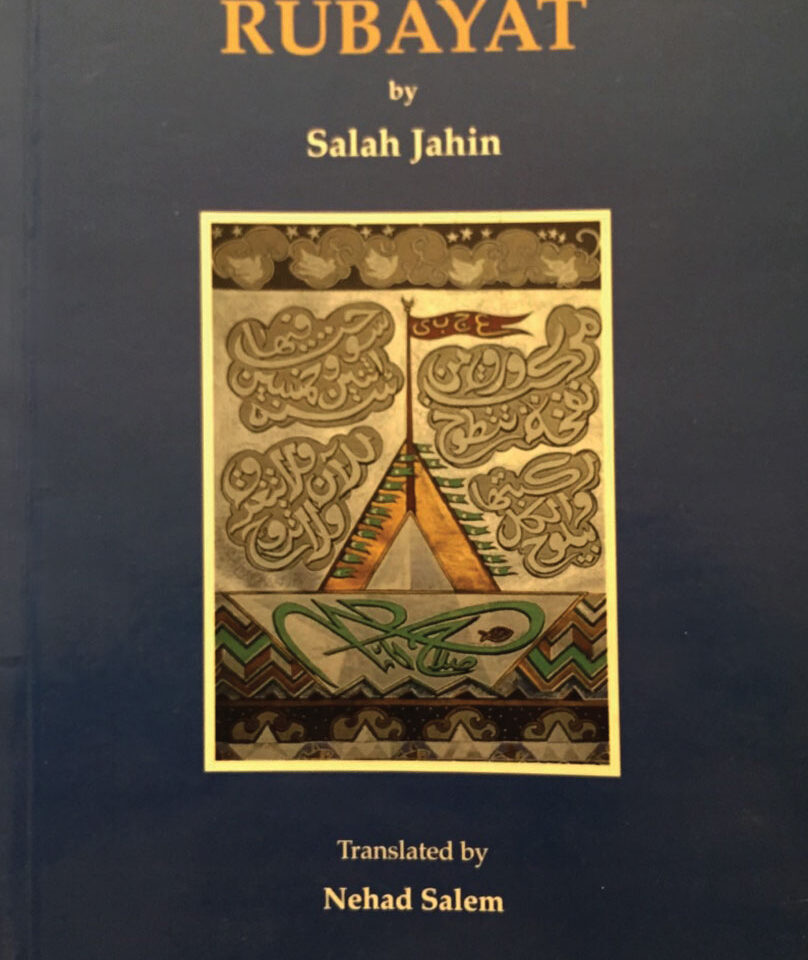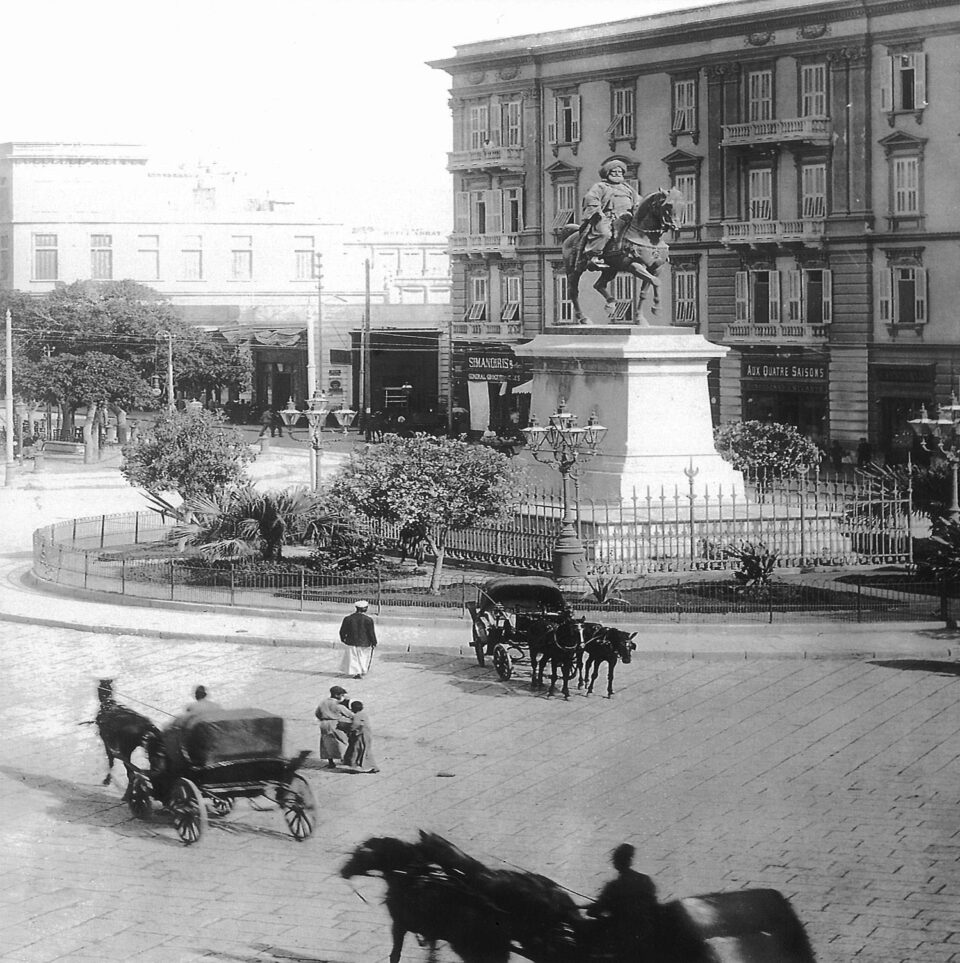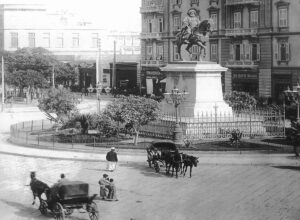Egyptians’ greatest achievements aren’t the pyramids of Giza, nor are they the treasures of Egypt’s most famous king, Tutankhamen or the awe-inspiring temples and tombs and grand statues in the heart of the desert. Egypt’s true marvels—usually overlooked by its own kin—are its people.
Modern Egyptians forget, unfortunately, that other Egyptians lived here, on the banks of the Nile and bequeathed to the world, over several eras, human civilization, culture, science, literature, and a magic that filled the world far and wide.
Over the years, great magicians lived on this land, the first of which were not the magicians of Moses’s Pharaoh, and the last of which will surely not be the great Egyptian prodigy, the tremendous talent in literature, visual arts, caricature drawing, cinema, song, acting, and puppetry, Mohammed Salah Eldin Ahmed Helmy, famous by the name of Salah Jahin.
Salah Jahin (December 25, 1930–April 21, 1986) was and still is the most famous star in the world of comprehensive Egyptian creativity. Jahin emerged from the famous cosmopolitan neighborhood of Shubra in the heart of Cairo, a child of an Egyptian culture open to the world, one that embraces all religions and nationalities. Shubra at the time was synonymous with tolerance and Egyptian co-existence, the place where Muslims, Christians, and Jews cohabited side by side, along with Greek, Italian, and French expatriates. Here was the birthplace of the internationally renowned Egyptian singer, Dalida, and here lived the father of Egyptian colloquial poetry, Beiram Eltonsi.
Here also lived the pioneer of Egyptian comical theater, Naguib Elrihany, and here was launched the talent of Egyptian director Youssef Chahine. It is in the street cafés of Shubra that Salah Jahin conceived the first gem in the string of his creative masterpieces:
I will run as if astride a horse
I will fly as if with wings
So beautiful are the fields
The space inspires joyful things
If I were a painter I would have come
With a bag of oils
And painted every field and home
Salah Jahin drew and wrote about every house in Egypt, about the dreams of the simple man, about Egyptians’ aspirations for freedom and justice. July 1952 was the embodiment of Jahin’s personal dreams. He saw Gamal Abdel Nasser and his comrades as the bearers of the torch of freedom and modernity that he dreamt of along with the rest of his generation of patriotic intellectuals. He wrote poems for Abdel Nasser, and contributed to constructing his image as a great leader. Jahin was the “poet of the revolution,” the singer of the people who inspired and electrified crowds. All the singers of the time sang his lyrics, from Oum Kalthoum to Abdel Halim Hafiz, and in them Egypt was always the birthplace, the victorious, but also the end point, the defeat.
About Egypt, history
Can say whatever it wills
Egypt is to me
The dearest, most beautiful of things
Jahin first entered the world of Egyptian creativity through illustration and colloquial poetry simultaneously. He soon surpassed the pioneer of Egyptian colloquial poetry Beiram Eltonsi, his fame overtaking even the genius of Fouad Haddad, who was described by Abdelrahman Alabnoudi as the king of poets. Jahin’s unstoppable stardom stemmed from the incredible richness and amazing variety in his creative work. From caricature drawings—which appeared in everything from Rose el-Youssef to al-Ahram—to his writing and acting for the National Puppet Theatre (el-Leila el-Kebeera) which immortalized the genius musical compositions of Sayed Mekkawy, and his unique cinema performances (Martyr of Divine Love, 1962; No Time for Love, 1963; The Thief and the Dogs, 1962)
Jahin also wrote numerous films that achieved legendary success in Egyptian cinema, which included films he also produced such as Take Care of Zouzou and Amira, My Love with the director Hussein Elimam, and Return of the Lost Son with Youssef Chahine.
Jahin, “The Darling of Millions,” as he was called by his adoring fans, was a patron, discoverer, and a personal friend of many music and film stars, most notably the talented actress Soad Hosny. After she starred in two of his most famous films, Take Care of Zouzou and Amira, My Love, Jahin wrote the films Shafika and Metwali and The Savage as well as the famous television series with Ahmed Zaki, Him and Her for her. Jahin also discovered the talents of Ahmed Zaki and Ali Elhaggar, who sang the most famous of Jahin’s timeless poems, the Ruba‘iyat (Quartets):
Why my love, must distance between us be
Distance is a sin not easily forgiven
Why my love must seas between us be
I cross one to find that between us, another has
been driven
The Ruba‘iyat is Salah Jahin’s masterpiece in which he encapsulated the musings and epiphanies of his years. It carried Jahin’s overwhelming sadness after the defeat of 1967, a sadness which later turned to depression after the death of Abdel Nasser and stayed with him till his controversial death in April, 1986. Rumor had it he took his own life, the same rumor which later took root after the death of Soad Hosny, who considered him her godfather.
Salah Jahin left a massive legacy of beautiful art, and his 1,061 poems have become icons in the history of colloquial Egyptian poetry. His love songs and patriotic tunes formulated the psyche of millions of children who grew up considering Salah Jahin as a grand and treasured product of a great people, one who did not for one moment cease to croon and create, even in the darkest, most unjust, and most despotic of times…
A thousand years old I am, yet so young
Alone, yet in my heart lives a throng
Afraid and knowing it’s myself I fear
Mute but with a heart full for who would hear









